San Francisco-based Impact Food was formed in 2020 when entrepreneur Kelly Pan met biochemist Adrian Miranda and computer scientist Stephanie Claudino Dafara, and the three set out to combine their areas of expertise to help stem the decline of wild tuna species through a scalable food technology. platform
Backed by Future Food Fund, Serpentine Ventures, Ahimsa Foundation and others, Impact secured $500,000 in strategic angel and VC funding last August, and this month debuted its plant-based, sushi-grade tuna at three locations of Japanese chain Onigili.
We were excited to speak with Kelly Pan, co-founder of Impact and the CEO, who holds a degree from the UC Berkeley-Haas Business School.
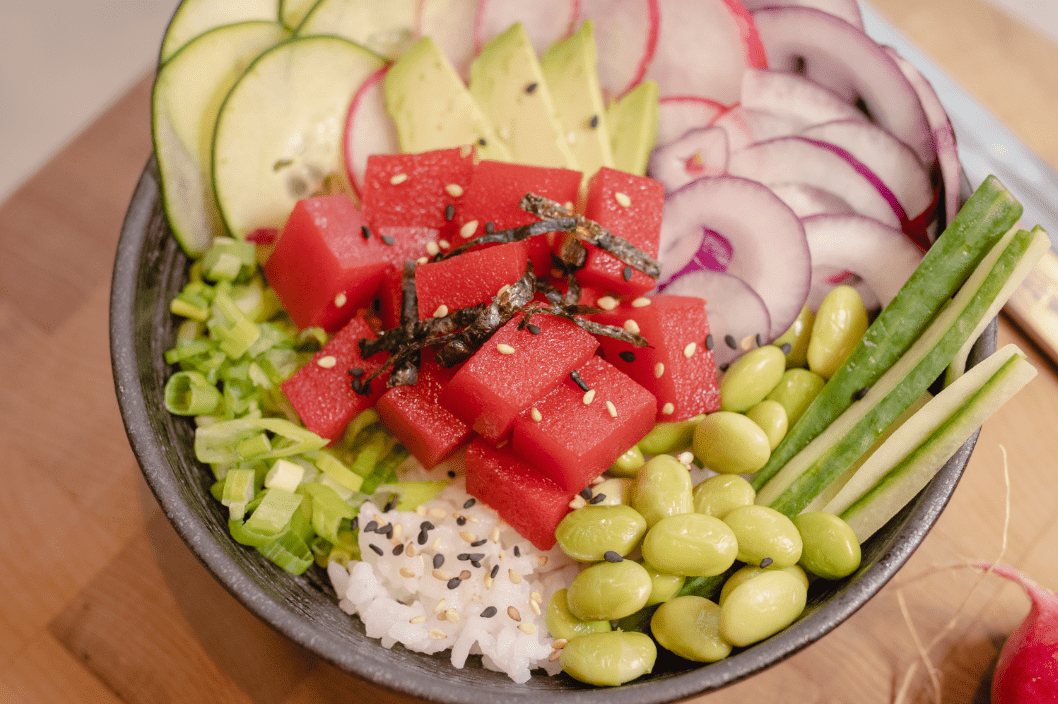
What is the mission of Impact Food?
At Impact Food, we are creating the future of food. Our mission is to reimagine a more sustainable and resilient food system through delicious and nutritious plant-based seafood. By creating alternative seafood products that taste and perform just like their animal counterparts, we are giving consumers the choice to make an impact through food.
“We designed a scalable, cost-effective manufacturing process […] It allows us to reproduce the delicate, complex textures in our seafood at high volume and cost parity.”
Can you tell us about your current product portfolio? Which is the most popular and why?
We are currently investing R&D efforts towards developing our product pipeline. Our first flagship product is Impact Tuna, plant-based raw sushi-grade tuna. It has the same or better umami flavor and melt in your mouth texture than whole cut and ocean tuna.
Impact Tuna has only been on the market for 2 weeks and has already received overwhelmingly positive feedback and demand. The popularity of Impact Tuna can be attributed to its delicious flavor, appearance, and nutritional profile – delivered without harming the ocean.

How are your products made and what nutritional benefits do they offer consumers?
At Impact, we studied the scientific composition of seafood and developed a proprietary production process based on plants and biotechnology – without using any fish. Our food technology platform relies on our unique texturization process to transform our seafood base (a blend of plant ingredients such as pea protein, algae and vegetable juices) into delicious and nutritious whole-cut seafood.
Our Impact Tuna products are high in fiber, omega 3 fatty acids and protein. The product is also low-calorie, contains no cholesterol and is always mercury-free.
Tell us more about the upcoming launch of your food service – can you give an insight into what will be on the menu?
On March 15th, 2023, we launched Impact Tuna exclusively at Onigili (San Francisco, Palo Alto, San Mateo and soon San Jose). Onigili is a beloved Bay Area Japanese eatery committed to serving gourmet Japanese-inspired poke bowls and onigiri (rice balls) using delicious, healthy and high-quality ingredients.
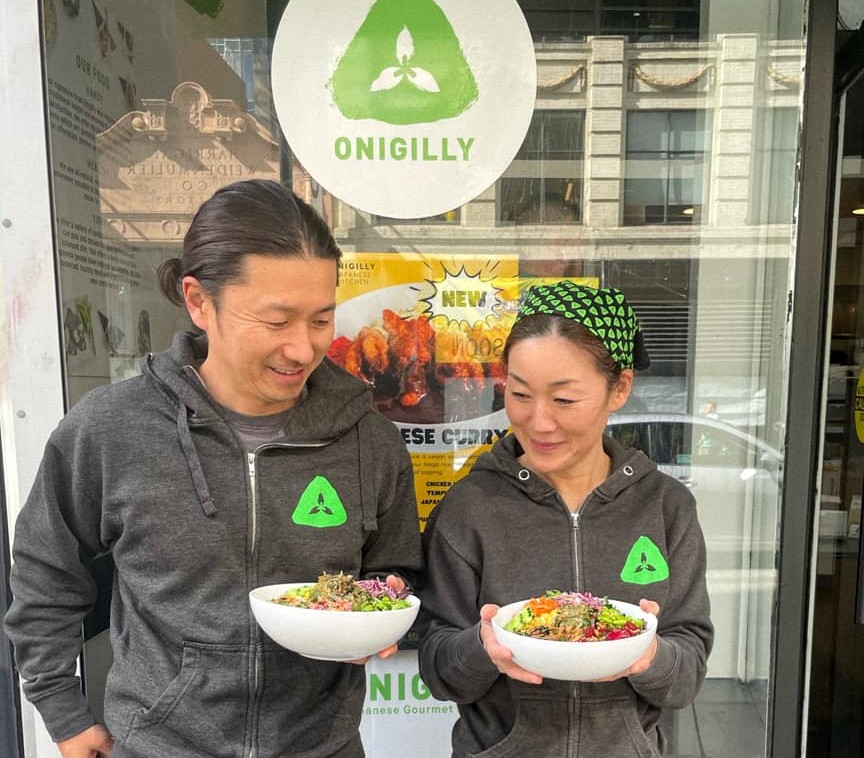
Ongilly currently serves Impact’s plant-based tuna, a whole-cut seafood that pioneers a new frontier in food innovation. Impact Tuna can be found in both their Japanese-inspired poke bowls and onigili rice balls.
Impact will be rolled out with foodservice partners across the country throughout this year.
We understand you are working on your own pilot production facility – how will the new plant affect your product productivity, cost and availability?
Building Impact’s own pilot plant will allow us to significantly expand our production capacity while maintaining full quality control and consistency of food innovation. We’ve designed a scalable, cost-effective production process that uses off-the-shelf equipment, allowing us to reproduce the delicate, complex textures in seafood at high volumes and cost parity with conventional animal-derived seafood.
This new plant will drive manufacturing efficiency and productivity, as we work to make Impact’s whole-cut seafood available to the general market at affordable prices.
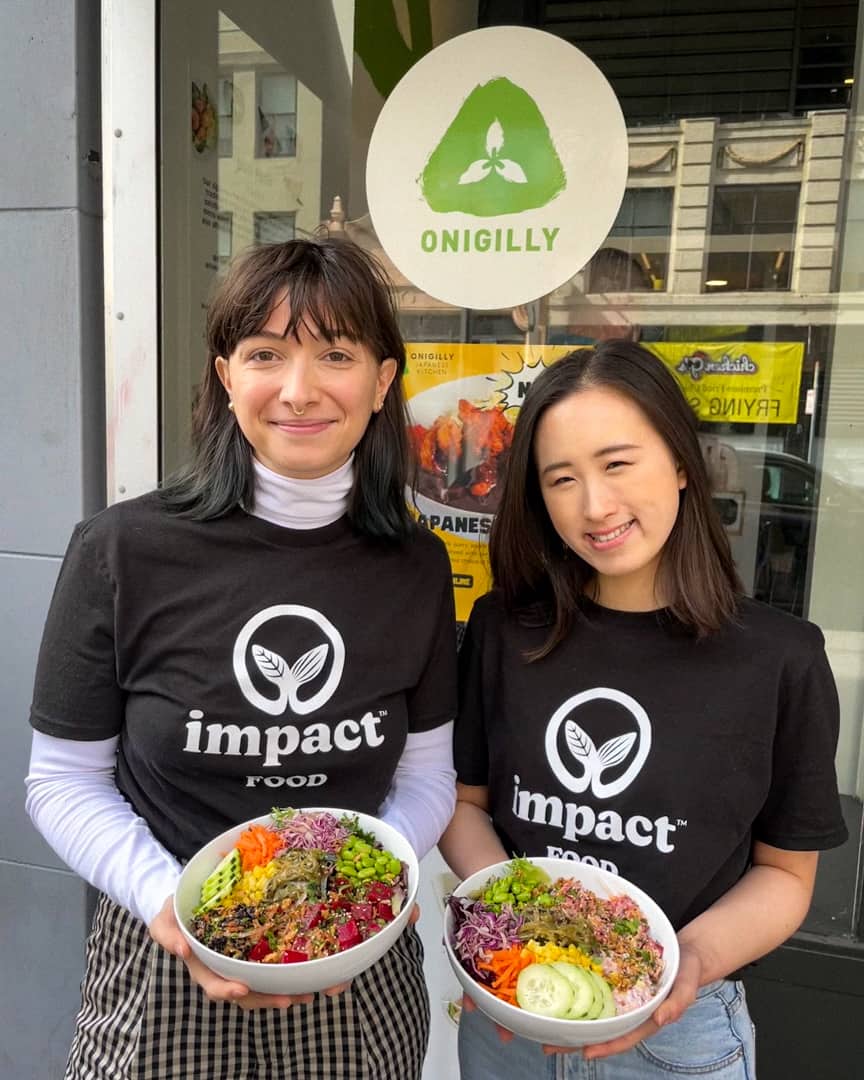
What impact can you make with plant-based seafood options in the US?
Our vision at Impact Food is to empower people to eat food that’s good for them and the planet. There are about 8 billion people on this planet and we all need to eat. To feed a growing global population, 90% of the world’s fish stocks are either completely fished or wild fisheries and marine ecosystems are being depleted by the commercial fishing industry every day.
At this rate, the nightmare of an empty sea is a close reality. Our oceans make up 70% of our planet and they control our climate, supporting all life on this planet. Irreversible damage has already been done to our global ecosystems and we must act now to reduce the pressure on our oceansand prevent further biodiversity loss and predation by harmless animals.
Impact Food’s plant-based seafood options can make a tremendous impact not only in the US, but globally as we work to feed the world and meet growing seafood demand by allowing our oceans to recover from decades of environmental damage.
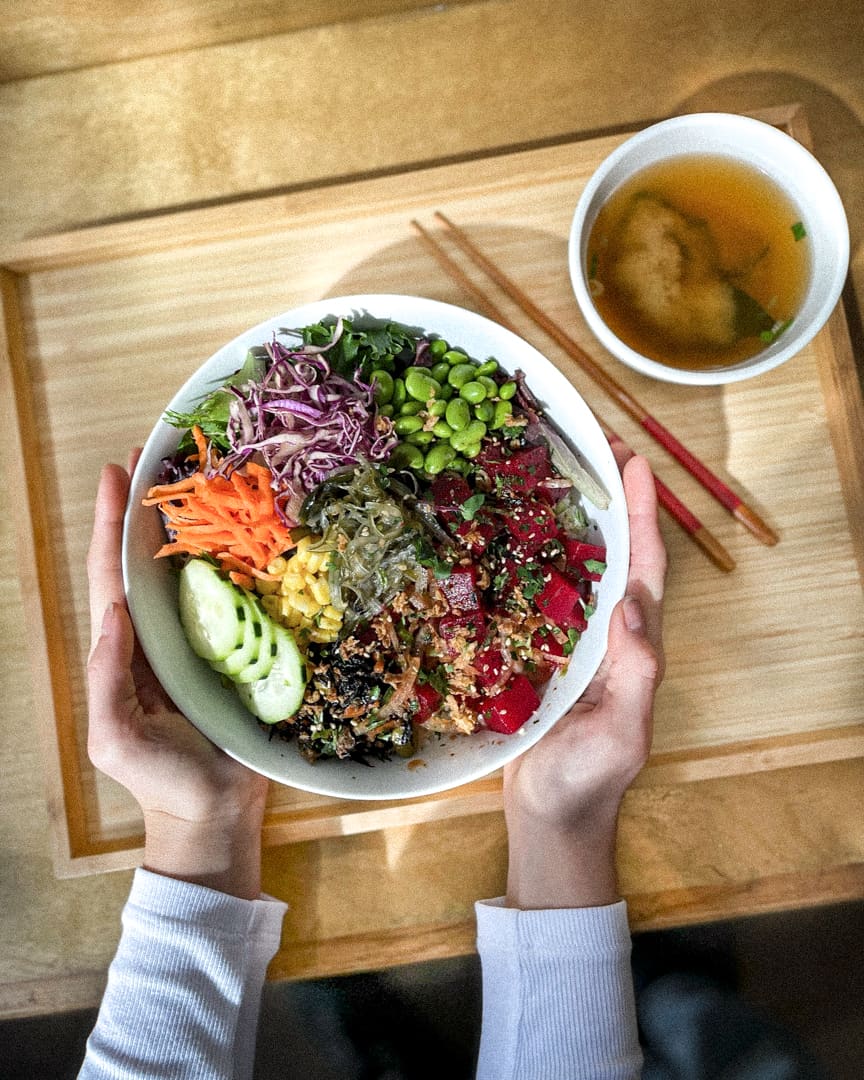
For meat eaters and vegetarians to change their diet, we need to create alternative seafood that has the taste, texture, mouthfeel, appearance and nutritional value of animal-based fish. We are facilitating a shift away from animal protein to meet consumer demand for tasty, nutritious, and affordable foods.
How does Impact Food differentiate itself from other companies in the alt-seafood space?
Impact Food is differentiated by our consumer-centric approach to innovation. We’re replicating whole-muscle cuts of seafood instead of breaded or ground products because great-tasting, versatile products drive consumer trial and re-examination, which is ultimately most important as we reinvent the seafood experience.
“We’re replicating whole muscle cuts […] Because great-tasting, versatile products drive consumer trial and reconsideration”
Creating delicious, high quality gourmet food is one of our core values as a company, so we needed to create a true replacement for seafood that was still clean label and healthy. Our first product (Impact Tuna) contains 9 ingredients, is ready to eat, and has a longer shelf life than conventional animal-based tuna.
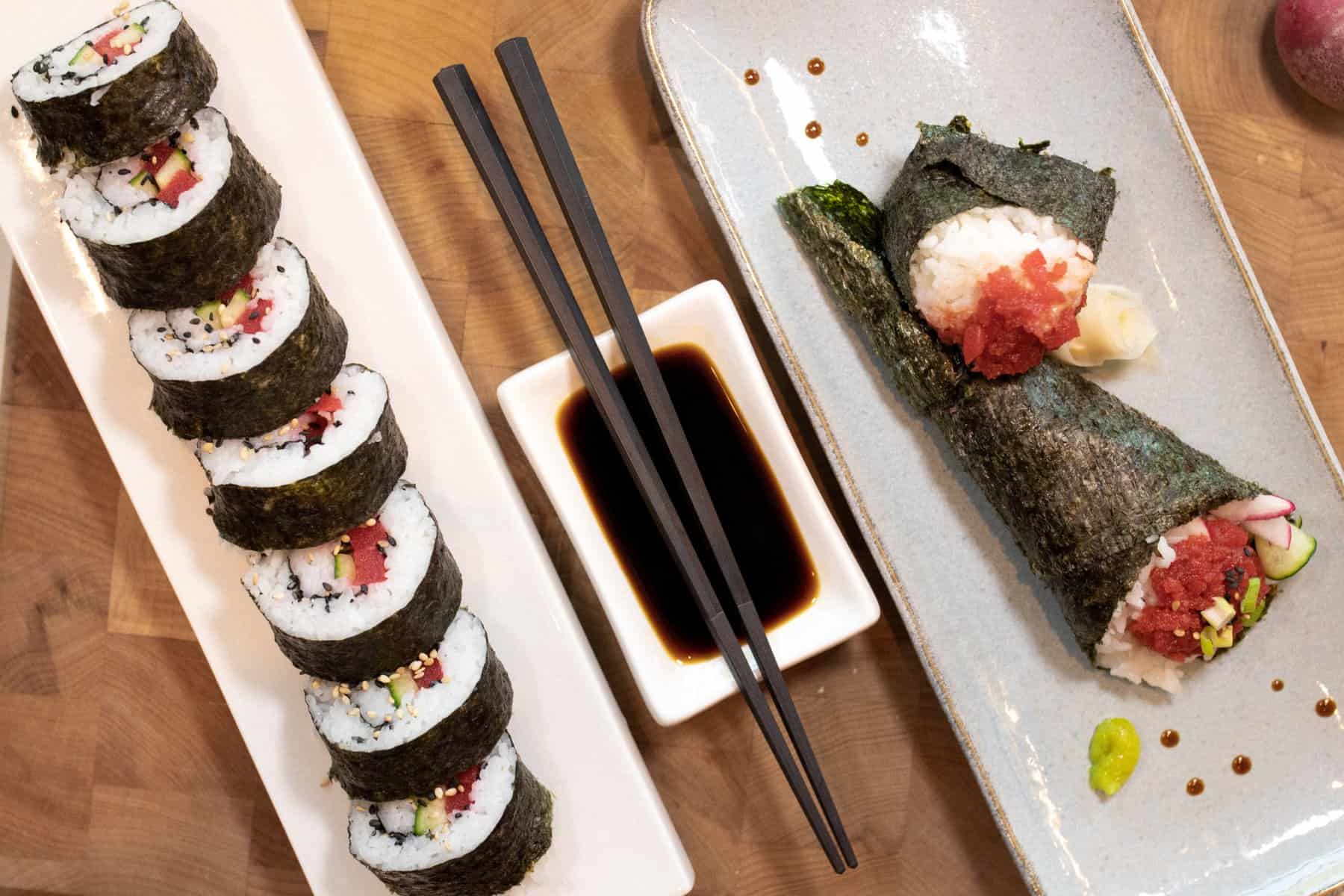
Our FDA-approved proprietary formula combined with our innovative processing technology has allowed us to reach price parity even at current pilot scale volumes.
What is your vision for Impact Food in the next 5 years?
In the next 5 years, our whole-cut seafood will be available everywhere around the world. We look forward to further scaling up our production and bringing our seafood to global markets like Japan. We see a future of food that can reliably feed our growing global population and protect our oceans and marine life.
“We are waiting […] Bringing our seafood to global markets like Japan”
We are working to recreate all the animal derived seafood products that people have come to love over time. In the near future, we are excited to take on more foodservice partners to create a new seafood experience and help consumers adopt a more plant-forward lifestyle.
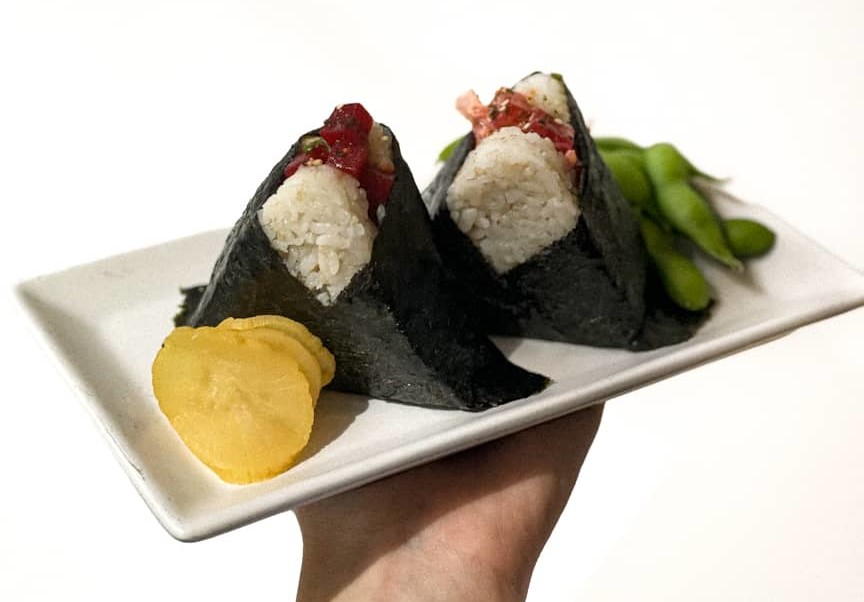
As we continue to innovate and scale our plant-based seafood offerings, we strive to reinvent the center of the plate with innovative, delicious seafood that’s good for our people, planet and animals, with no harmful mercury, parasites or antibiotics. We plan to make our plant-based seafood available and accessible to mass markets and transform the way we eat to positively impact our food system.
Can you tell us about any innovations at work?
We are currently hyper-focused on creating the tastiest whole-cut seafood products, starting with our debut Impact Tuna. Impact’s Seafood Texturization Platform is basically a toolbox that we can use to design different seafood products and recreate animal muscle structure using plants.
Stay tuned on our social media @eatimpactfood or eatimpactfood.com in the loop for our exciting upcoming innovations!

